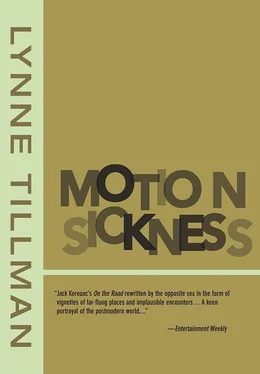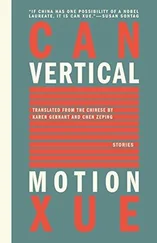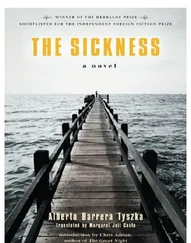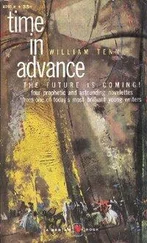I define trigger the verb but don’t bring up Trigger the proper noun, the famous TV horse of the famous TV cowboy, Roy Rogers. Trigger the horse who is now stuffed and standing on the cowboy’s front lawn. Is Roy Rogers dead, is Dale Evans? He wouldn’t get her stuffed, that’s for sure. He might want to, though. Roy Rogers is a chain restaurant for hamburgers. I don’t even mention Tom Mix and Tony the Wonder Horse whose metal statue stands in Florence, Arizona, at the Tom Mix Memorial. I used to love Westerns, John Ford Westerns, The Searchers especially, but Italian Westerns changed that, and war and gangster movies fill the gap. Sylvie and I pay our bill and agree to meet again, not accidentally, at a disco. We kiss each other once on each cheek, though I’ve been told that three times is correct in certain circumstances. I don’t know if this is one.
Pissoirs and men’s legs. Trousers and shoes. Walking back to Arlette’s I pass an ancient pissoir. Guys back home piss against buildings or in doorways. One called out to me, Don’t look. I’m pissing. I said, I won’t. Then he said hesitantly, You can look if you want to. There are also plastic outdoor toilets shaped like newsstands whose insides turn upside down and sterilize themselves after each use. Arlette tells me the French are mad about toilets and that much innovation and inventiveness, especially with plastic, goes toward the development of new and better ones. She may be joking. Pissoirs are a vestige of an idea of Paris. Paris includes the trousers and shoes of anonymous men in circular steel chambers. The French may be building the perfect toilet, but Sal would’ve pissed anywhere if he had to go. When you gotta go, you gotta go. Give me some traveling music. I’ve revived Sal. He’s a hypnagogic figure, a hologram. Not a taxidermist’s dream.
Chapter 13. Kill the Umpire
“The expatriate represents, in fact, the normal state of an average citizen in this last part of the 20th century.”
— Julia Kristeva
LONDON
The French café is always the same. Except it’s Claudia’s day off and she’s not gracing it with her special presence. Even the elderly English couple who talked about the decimalization of the pound are here, precisely where I left them. The gray-haired woman looks distracted as she complains to the bald man, her husband, of Sybil, who may be their daughter. I spread my newspaper out, covering Patricia Bosworth’s biography of Montgomery Clift, and drink a second cup of café au lait. Gregor’s letter, which arrived today, alludes to Clara; he purposely doesn’t name her. He was once, during the Baader-Meinhof era, detained by the police for questioning and let go. “Now I think to write a play based on the murder of Ulrike Meinhof. Did you hear in the U.S.A. about a psychological test then to give to the schoolchildren in Germany, to discover if they had already terrorist tendencies?” He says he’d like to meet Arlette one day, that her theory of Meninas is interesting, that since I’m in London I might inquire if Oscar Wilde wrote “The Birthday of the Infanta” influenced by the Velázquez painting. He begs me to forgive his bad English.
Gregor captivates me. I’m easily captivated. My mother once remarked that, with time, people wouldn’t enchant me. Marilyn Monroe thought that Monty Clift was the only person in worse shape than she was. I pay for my coffees and slide past the elderly couple who have fallen silent.
In the tube the escalators at Holborn and Piccadilly climb forever and are long enough to be runways in old Busby Berkeley musicals. Someone might burst into song or do a dance routine, passengers might become a high-kicking chorus line on their way to work, to shop, shoplift, eat, or wander aimlessly. The train fills up with groups of men heading for a soccer game in the north. It must be Saturday. They wear scarves around their necks and slap each other on the back, exuding a desperate team spirit. A friend of mine told me that the sound of ocean waves breaking, the water rushing in over rocks and pebbles on the shore, was to him like applause. When I go to the opera with him, both of us have tears in our eyes at curtain calls. The divas bow low and oceans of love crash at their feet. I miss the sound of fans roaring after a home run. My team’s home run. I don’t enjoy the game in the abstract. I yell Kill the Umpire. This doesn’t travel well.
There’s a different young man behind the hotel desk. Pradip’s of Indian descent, but English, born and educated here, he tells me. He’s just out of hotel school and likes Culture Club and Bruce Springsteen. He’s also wearing a soccer scarf. I settle into a new room but one with an abject style similar to the other as well as an absence of what Jessica would call beauty. It’s smaller, darker, and cheaper because it’s in the basement and has a half-view of the street, of shoes and socks, of calves and ankles, of the bottoms of canes and umbrellas. I’ve taken it by the month though I may move to a bed-sitter, or to Jessica’s. She’s invited me. After her youngest sister leaves.
Jessica laughs when I confess to being the underground woman. The baby, a boy she’s named Caleb after her great-grandfather, rests in her arms, while her sister, Sarah, watches. Grimly I think. I missed Caleb’s birth, a painful one, by three weeks. He was premature. Quite, Jessica says, with an English accent. She’s holding an exceptionally small English or British baby in her arms. He won’t need, as Jessica did when she was settling here, to register as an alien — and then marry to ensure his right to stay. He’ll have the chance for dual nationality. Which the Americans, Jessica goes on, don’t offer. Everyone’s so nervous about their origins — being American isn’t solid as a rock, not Plymouth Rock, she laughs. Sarah, the youngest sister, turns her head away, annoyed.
With Sarah out of the room, doing the shopping and buying several pints, not quarts, of milk, Jessica whispers that a very strange thing happened in the hospital. She heard a voice, a disembodied voice, like an angel or spirit. It didn’t speak in the normal sense, but she felt visited by or attended to by some soul, just before giving birth. It was, she felt, a good omen, an extraordinary prelude to Caleb’s arrival. Jessica’s even written a poem about the experience. She feels it may have been Charles visiting her or someone who was dead. She delivers this story in hushed tones, a stage whisper that carries eerily in the bedroom. A ghost story. Jessica trained, I learn, years ago, to be an actress and occasionally does performances which she writes. Holding her baby, she’s subsumed in motherhood which may be a good role for her, one she’s had experience with, having been the eldest in a family of four.
Of course, Jessica remarks beatifically, you think I’m mad. Then she gazes into Caleb’s eyes. They’re bonding. I don’t think she’s mad. Caleb’s so tiny the idea of nationality seems foolish. His minuscule fingers and toes curl and uncurl feebly, spittle and drool ooze from his wet button mouth. Caleb might grow up to be a monster on the order of Gilles de Rais or Ted Bundy. Or, since he’s British, Jack the Ripper or the Yorkshire Ripper. He has the possibility of becoming a Kim Philby or a Mahatma Gandhi. Or Steven Spielberg, for that matter. But perhaps this is very American, to imagine all this, this range of possibilities. Home on the range. Jessica looks as if she’s about to sprout wings and fly around the room. A study of maternity, like a Madonna with Child by Bellini, this dyad is similar to a painted one I saw in Venice in that church where the English brothers, Alfred and Paul, first came into view.
Chapter 14. A State of Flux
Читать дальше












